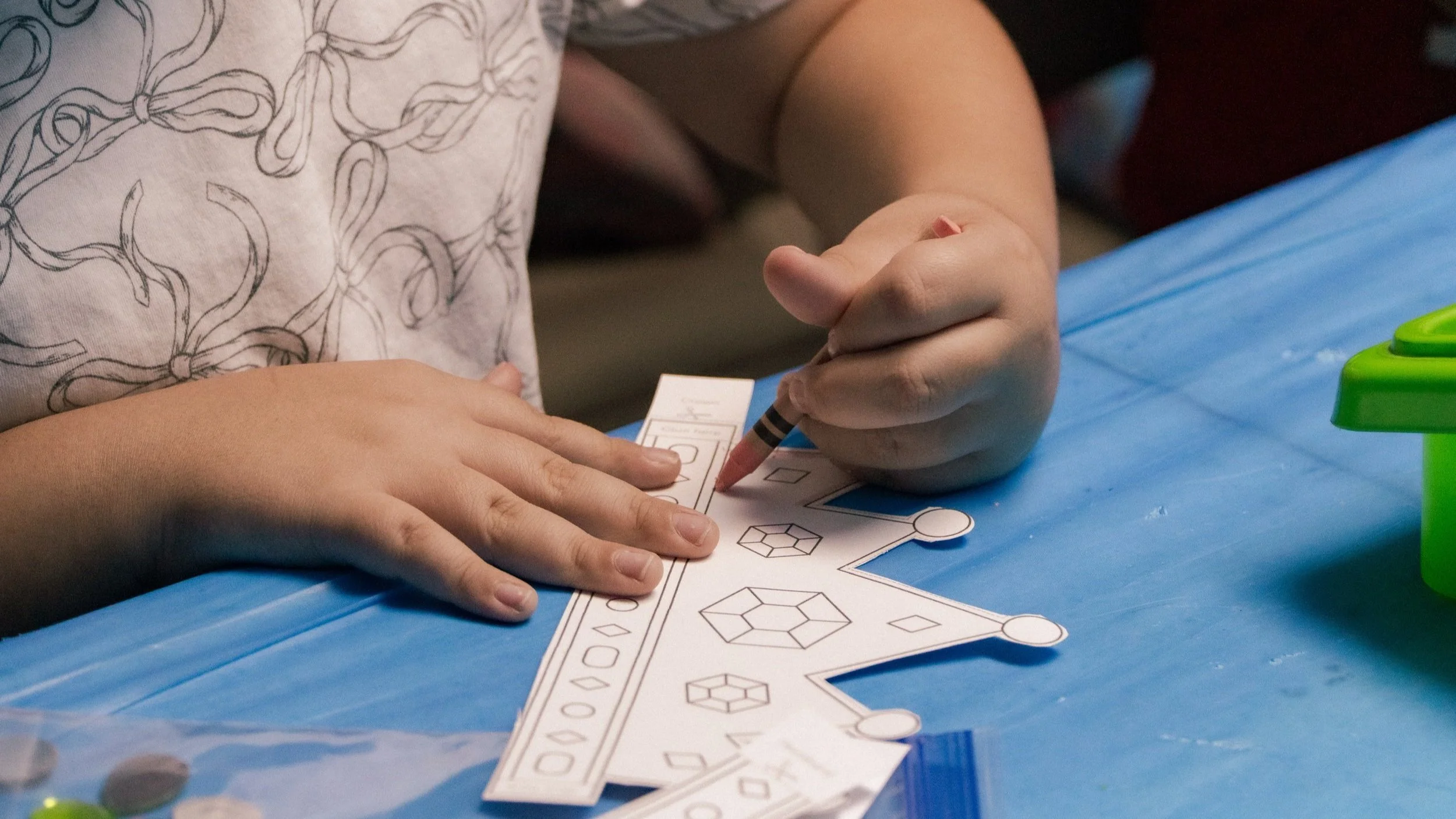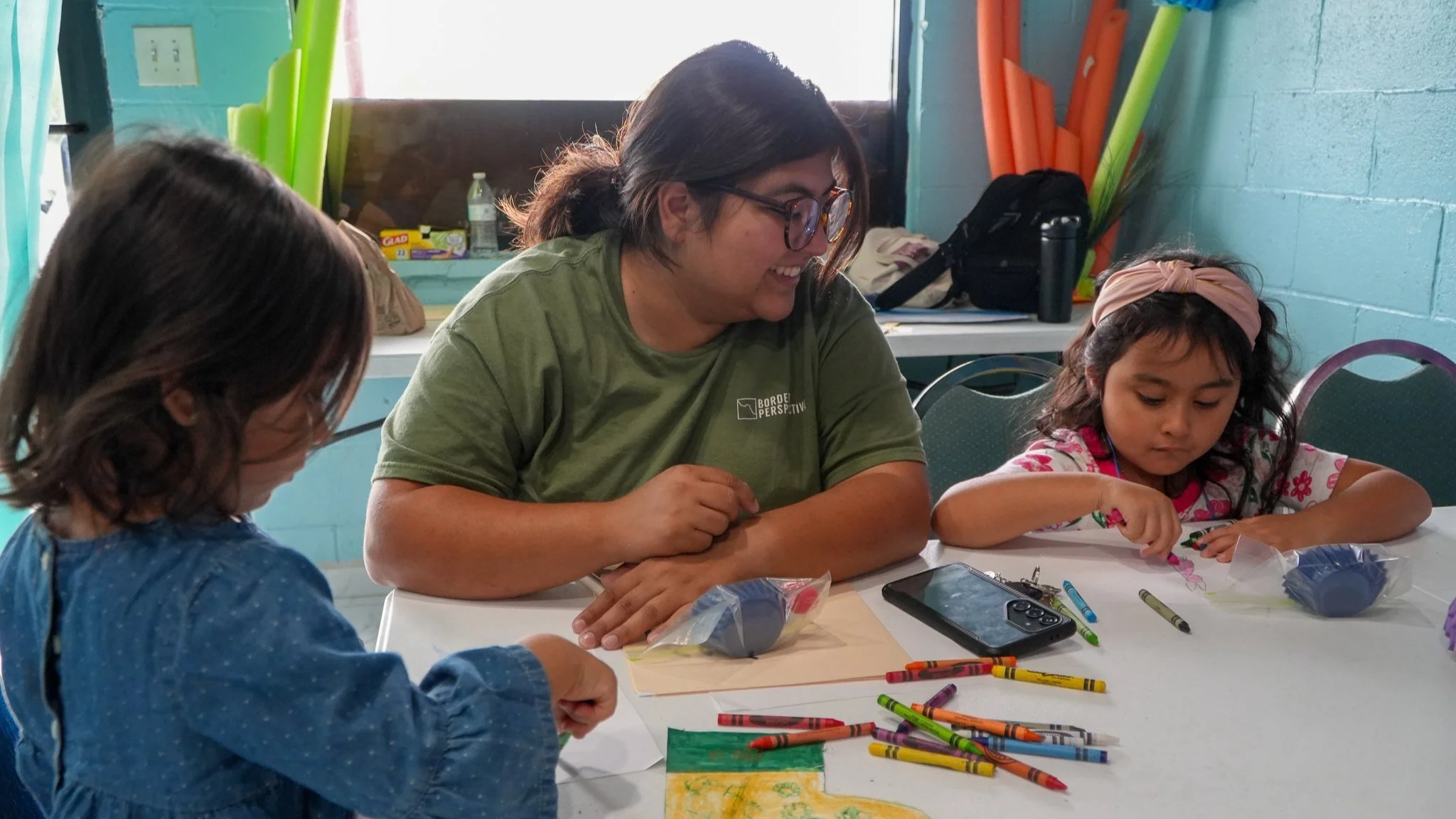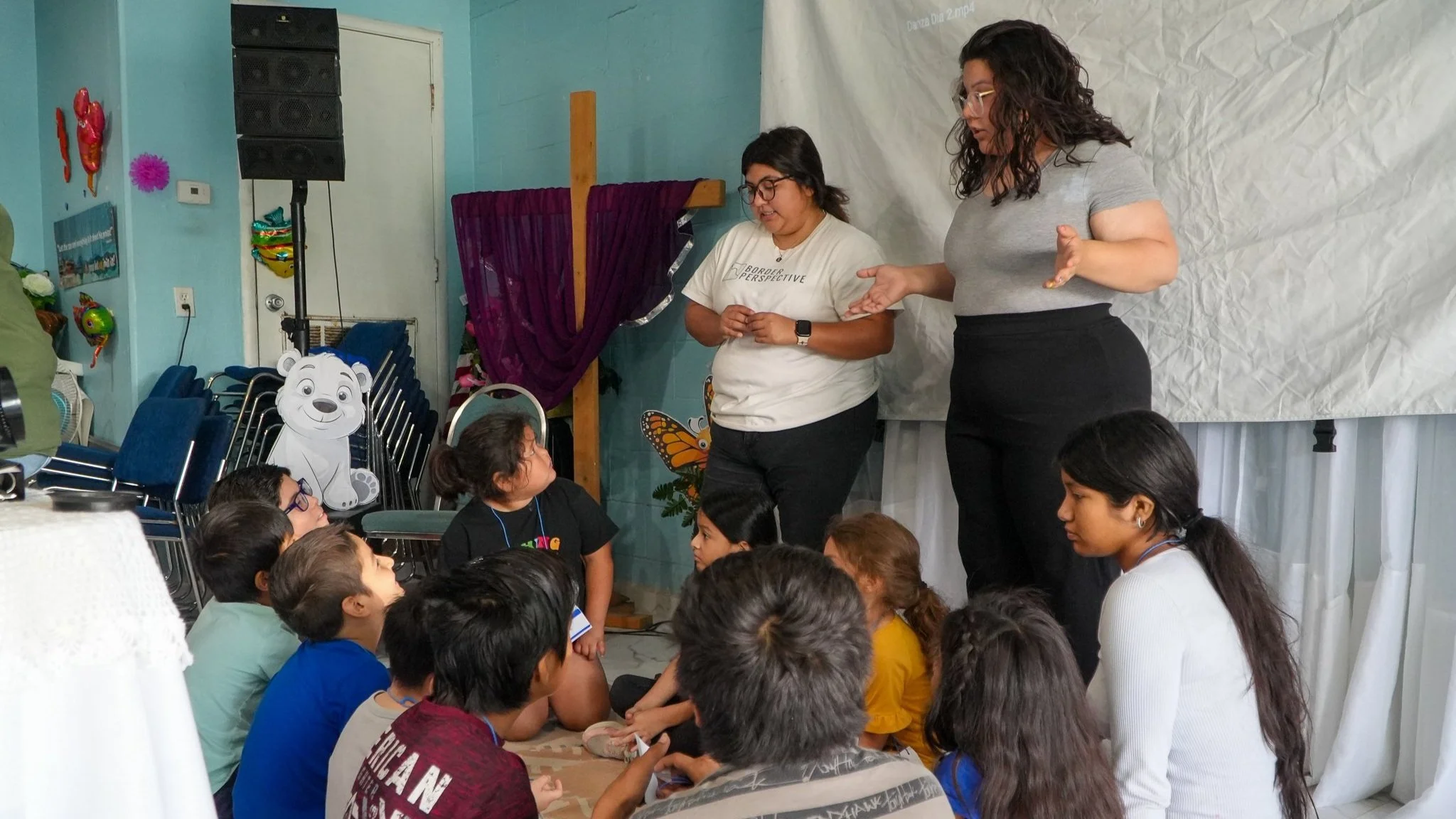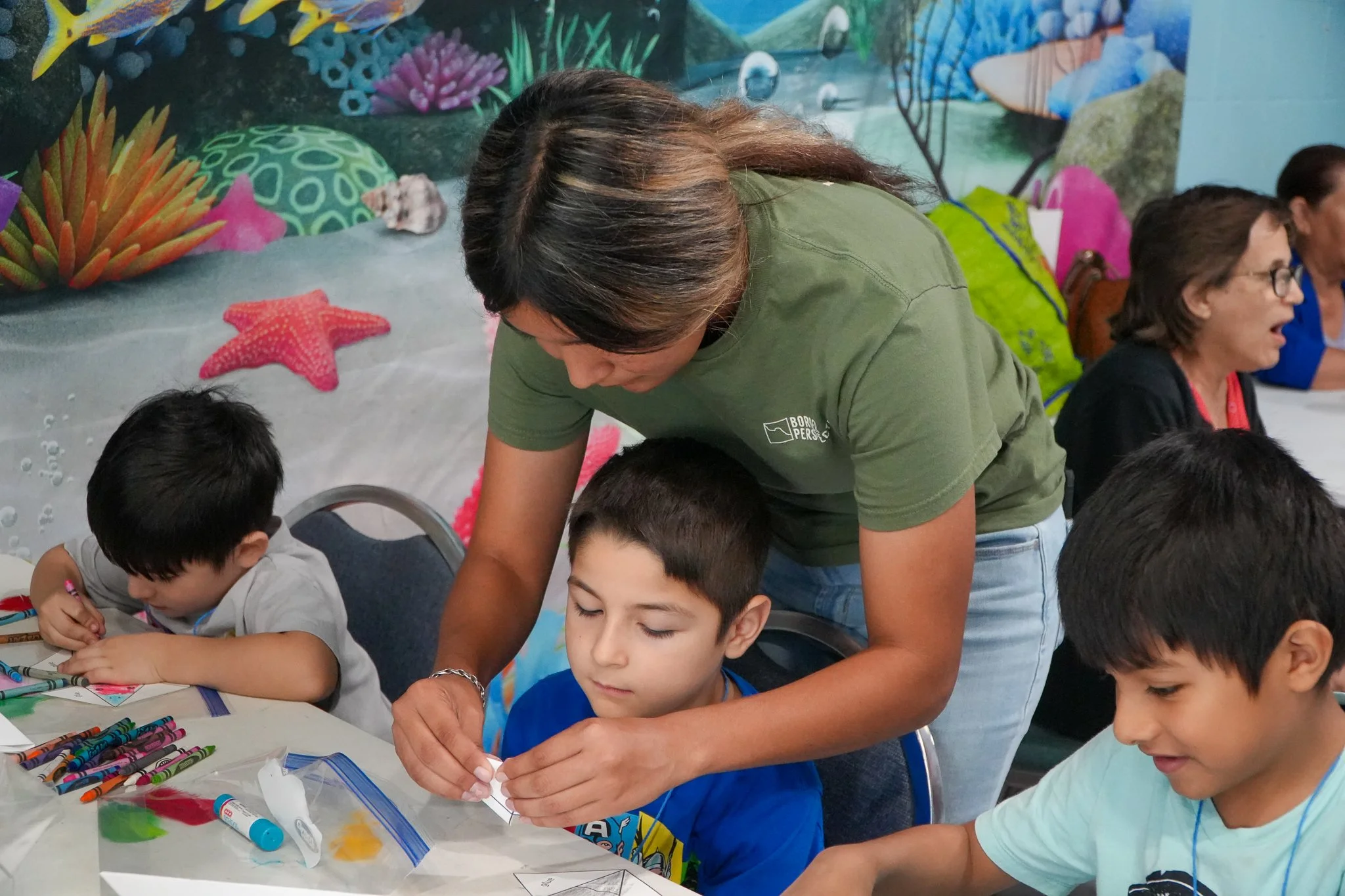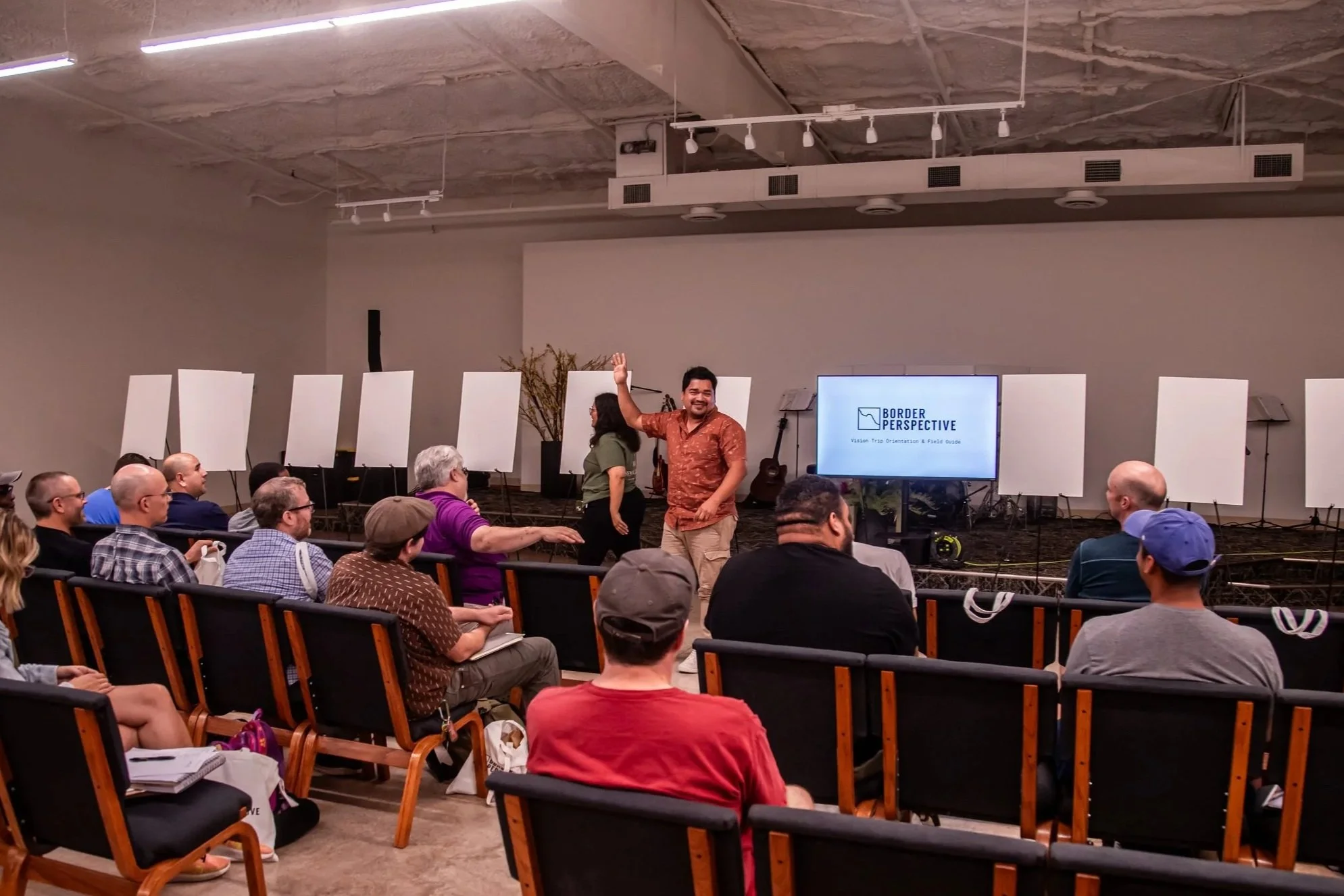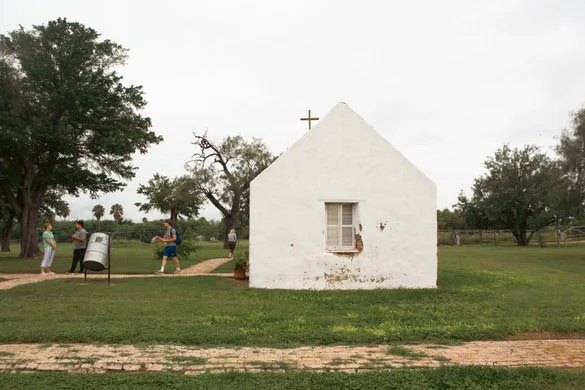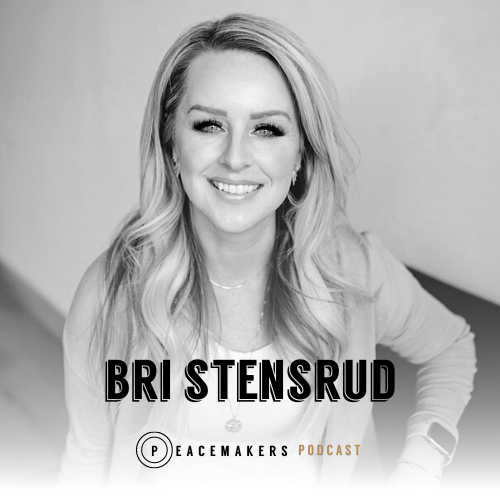Trusting God On Our Journey
Throughout the month of June, Border Perspective’s Next Gen Development Program had the opportunity to partner with three churches that make up part of Iglesia Misionera Cristo Vive’s local church network to facilitate a Vacation Bible School program. Every month, these local pastors serving across the Rio Grande Valley gather together to pray for the community and for one another. This month, they gathered to serve the children in their churches and neighborhoods; sharing resources and serving together for the sake of the gospel.
Jennifer Moya (Border Perspective) and Yesenia Vasquez (Iglesia Camino de Salvación) co-created a five-day interactive curriculum that connects the themes of animal migration patterns to the challenges faced by immigrant communities and the promises of God in Scripture. The curriculum included games, crafts, worship songs, and stories from Scripture that relate to the lived experiences of immigrant children and their families in the United States. Now more than ever, it is important for the next generation to understand their identity in Christ, especially as national immigration rhetoric attempts to define their identity for them. God has always moved through the movement of people, and His promises to His people are the same yesterday, today and forever.
This month was full of the power of the Holy Spirit as children in churches along the border identified with the stories in Scripture, memorized God’s promises, and began to understand how God is at work in their lives and in the lives of their families.
Day 1: Abraham Trusts God’s Call
"Blessed is the one who trusts in the Lord, whose confidence is in Him." – Jeremiah 17:7
In Genesis 12, God called Abraham to leave his family, his home, and all that is familiar to go to a strange land that he did not know; promising to bless all of the nations through his offspring. We often forget that the people we read about in Scripture are human just like us. Abraham and Sarah likely struggled with moments of fear and uncertainty as they made the decision to obey, pack all of their belongings, and leave behind all they had ever known. Yes, their lineage is their legacy, but so is their faith; the faith that compelled them to obey God’s command even when it felt unclear and required immense sacrifice.
Through this story, the children were reminded of the brave decision many of their families made to leave behind all they had ever known. They each named where their families were originally from, some having immigrated to the United States more recently than others. The older children were able to remember how their parents struggled to adjust to eating new kinds of food, and learning a language that was not their own.
Perhaps God did not make a promise to each of them to bless the nations because of their decision, but the decision to begin again requires faith, and without faith it is impossible to please God (Hebrews 11:6).
Day 2: God Provides for Elijah
“And my God will meet all your needs according to the riches of His glory in Christ Jesus." – Philippians 4:19
In 1 Kings 17, God commands Elijah to pray for a three year drought because of King Ahab’s hardened heart, and promised to provide for Elijah’s every need as crops died and water sources became scarce. He told Elijah to go to the bank of the Kerith Ravine and to drink from it, and that He would send a raven to bring him food twice a day.
The children agreed that it might be easy to trust God to provide water from a river. After all, you can see the source. They shared it would be harder to trust that God would send a bird every day twice a day with food to eat.
Through this story we are reminded that faith is confidence in what we hope for and assurance about what we do not see (Hebrews 11:1). A few of the older children were able to remember a time that God met the needs of their family in powerful ways that could not be explained apart from God. A 12-year-old girl recalled a time when she was separated from her parents because of their immigration status. In those uncertain moments, she wondered who would care for her and her siblings while their parents were away. Yet even then, the Lord surrounded them with provision, as they waited and hoped for their parents’ return. God is concerned with the needs of the widow, the orphan and the foreigner, and often provides for them in miraculous ways.
Day 3: Esther Trusts God’s Timing
"Wait for the Lord; be strong and take heart and wait for the Lord." – Psalm 27:14
In Esther 4, Queen Esther’s cousin Mordecai pleaded with her to approach King Xerxes, the king of Persia, and beg for mercy on behalf of the Jewish people. A royal edict, influenced by one of the king’s advisors, had authorized the destruction of all the Jews living within the Persian empire, but the king did not know his wife Esther was a Jew herself.
Mordecai reminded Esther that perhaps she was made the queen of Persia for such a time as this (Esther 4:14). In Persia, anyone who came before the king without an invitation risked their life, but Esther valued the welfare of her people more than her own life. Three days later, Esther approached the king after corporately fasting with the Jewish people in the land. God softened the king’s heart through Esther’s boldness. When the king discovered his wife’s identity, the jewish people were shown mercy. Their lives were spared because of Esther’s sacrifice and position.
Through this story the children learned what it means to be brave and courageous in the face of challenging and even threatening conditions. God always has a purpose for our circumstances, and it is up to us to discern the times we are living in, to listen for His voice, to live boldly, and to wait for the Lord to do what only He can do.
Each one of us were made for such a time as this.
Day 4: Moses Trusts God’s Plan for Israel
“For I know the plans I have for you,” declares the Lord, “plans to prosper you and not to harm you, plans to give you hope and a future.” – Jeremiah 29:11
Many of us know Moses for confronting Pharaoh, parting the Red Sea, and leading the people of Israel out of slavery in Egypt, but Moses’ upbringing was complex, and the events leading up to the exodus were equally significant moments in his character formation.
Moses grew up in Pharaoh’s household after his mother, in an act of faith and desperation, placed her son in a basket to save him from the Egyptian decree requiring all newborn Hebrew boys to be killed. Pharaoh’s daughter found the baby among the reeds along the Nile river and had mercy on him, raising him as her own, ironically, just miles away from his family of origin.
Though raised in the Egyptian palace, Moses was Hebrew by birth. His dual identity led to deep internal conflict before God’s will for his life was revealed to him. This tension came to a head when Moses killed an Egyptian who was beating a Hebrew slave. When Pharaoh heard about the Egyptian's death he demanded Moses’ life, so he fled to Midian and became a foreigner for the second time in his life.
In Midian, through another moment of defending the vulnerable, he met his wife and settled into a quiet life, tending to his father in law’s flock. One day, while in the fields, God met Moses and spoke to him through a burning bush. The angel of the Lord called Moses to return to Egypt, to the very land he had fled.
It was through unimaginable circumstances – his birth, his identity struggle, his exile – that God wielded Moses into one of Israel’s greatest leaders. Moses trusted God and walked in obedience in spite of his fears. As the saying goes, “The dogs of doom bark at the doors of destiny”. Often, God calls us to the places and spaces we are most reluctant to go. And yet, His promises are the same: He will be with us always, even to the very end of the age, as we are strong and courageous to obey His words.
Day 5: The Promise of Jesus
"Jesus answered, 'I am the way and the truth and the life. No one comes to the Father except through me.'"
– John 14:6
In John 14, Jesus reassured His disciples that He was going to the Father to prepare a place for them. He reminded His disciples that they knew the way to where He was going. In their typical fashion, one of His disciples asked, “Lord, we don’t know where you are going, so how can we know the way?” In His patience, Jesus responded that He is the way, the truth, and the life. He was sending them a counselor, the Holy Spirit. He was not leaving them behind as orphans, but preparing the way for them to be with the Father for all of eternity.
In later chapters that follow, leading up to the crucifixion, death, and resurrection, Jesus shared with His disciples that they would face persecution and suffering of many kinds (Matthew 24), but that they should not be afraid because He had overcome the world (John 16).
The children learned that Jesus’ promise is the same today for those who believe, trust, and love Him. Even as they struggle in this life, as the world around them continuously shifts and changes, and when this present kingdom fails them; there is an eternal kingdom that is to come, and a place that Jesus is preparing for each one of them. He is the way, the truth, and the life.
He makes wars cease
to the ends of the earth.
He breaks the bow and shatters the spear;
He burns the shields with fire.
He says, “Be still, and know that I am God;
I will be exalted among the nations,
I will be exalted in the earth.”
The Lord Almighty is with us;
the God of Jacob is our fortress.
— Psalm 46:9-11

